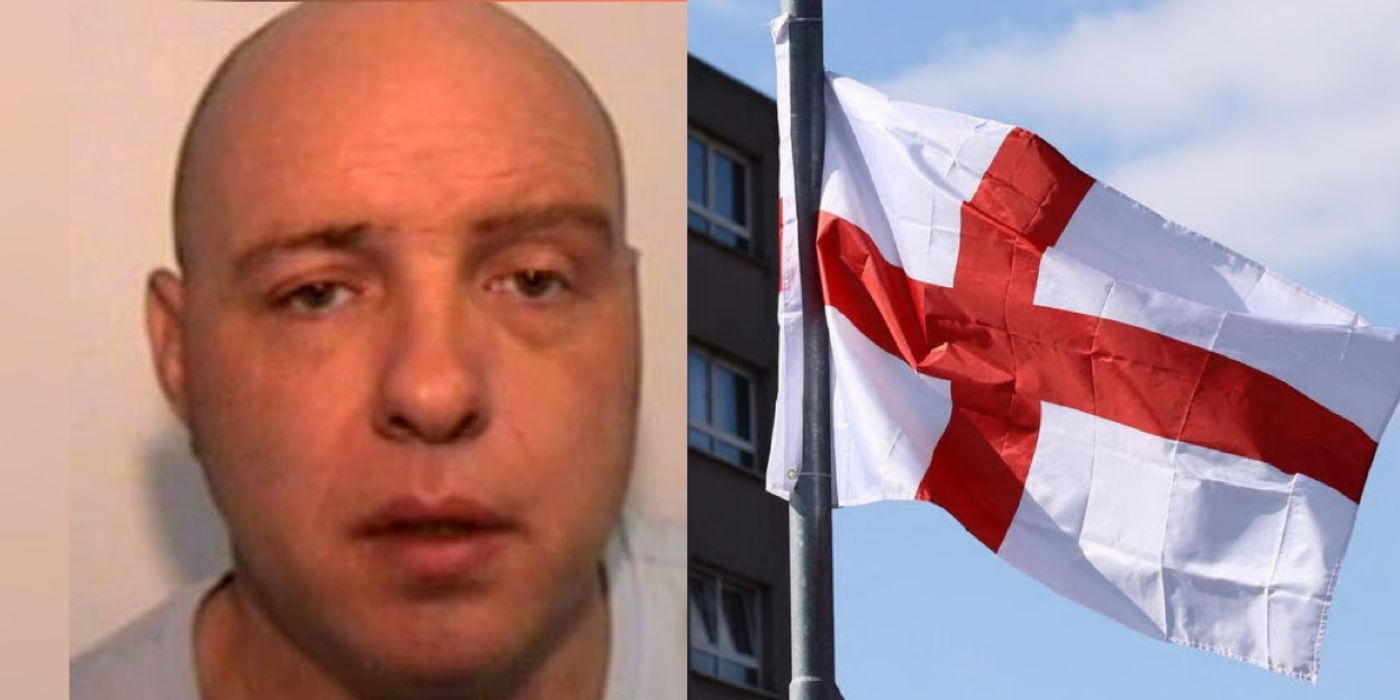

A recent investigation has revealed that the individual leading a campaign to display Union and St George’s flags across England, portrayed by some as an expression of national pride, was convicted and jailed in 2016 for attempting to smuggle illegal immigrants into the UK. He was caught with four Vietnamese nationals hidden in the back of his van near the Calais border and subsequently sentenced to 20 months in prison after being found part of a people-smuggling ring.
The organiser, identified as Lee Twamley, 55, remains active in the initiative known as “Operation Raise the Colours”. Twamley, also referred to locally as “Salford T-Bone”, has become a central figure in the campaign despite his previous conviction.

The movement has seen Union and St George’s flags tied to lampposts and painted on buildings across towns and cities. Supporters describe it as a demonstration of patriotism and community spirit, but critics argue it has been influenced by far-right activists. Anti-racism groups such as Hope Not Hate and Stand Up to Racism have drawn attention to these connections and raised concerns about the message being sent to migrants and minority communities.
Since the story broke, Lee Twamley has posted on his TikTok account under the name “Salford T-Bone”, addressing the media coverage directly. He dismissed the revelations about his smuggling conviction as “old news”, noting he has “completed his sentence” and urging critics to move on.
.jpeg)
Twamley defended his past actions by claiming the migrants he attempted to smuggle were destined not for exploitation but for work on cannabis farms. His TikTok feed is characterised by content showing streets adorned with Union and St George’s flags, often overlaid with music or commentary implying patriotism. Viewers on the app have mocked his credibility, some dubbing him a “pretend patriot”, to which he has responded defiantly rather than apologetically.
.jpeg)
Twamley uses social media actively to promote the flag-raising campaign, sharing videos of flags being erected in Manchester, Salford and beyond. He appears to use TikTok as his main public platform, largely ignoring mainstream media criticism while maintaining a tone of defiance and pride in his actions.
.jpeg)
Local responses to the campaign have been mixed. In some areas, flags were removed by councils citing safety risks or lack of permission, while in others they were left in place with officials defending the displays as lawful expressions of identity. Government figures have generally supported public use of national flags, though they have warned against attempts to use them for divisive purposes.
For some residents the flags are viewed as a unifying symbol, but others see them as hostile markers aimed at communities from migrant or ethnic minority backgrounds. This contrast highlights how one initiative can generate both pride and fear depending on perspective.
.jpeg)
The revelation of Twamley’s criminal record has sharpened the debate. While many backers of the campaign continue to present it as harmless patriotism, the organiser’s past has raised questions about the true motivations behind the movement and whether it is being shaped by individuals with extremist connections.
The issue has therefore become a point of national discussion, reflecting ongoing tensions in the UK over identity, immigration and the fine line between pride in national symbols and the risk of exclusionary nationalism.